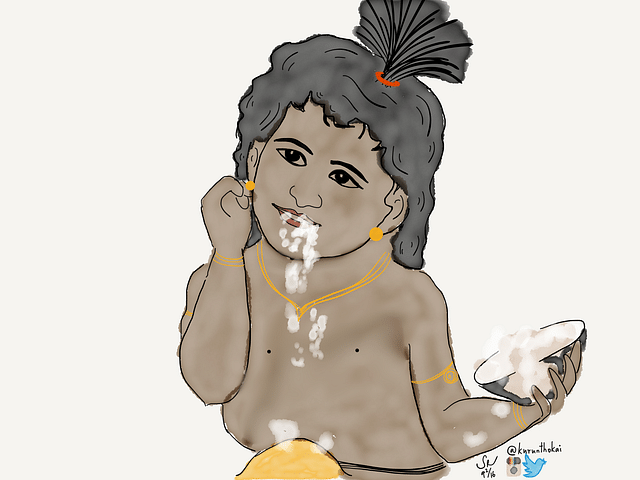
Sangam: The Joy Of Children; The Grief Without Them
In this installment: verses on the gift of children from the Purananooru, one of the oldest Tamil Sangam anthologies.
This week, a Facebook page called ‘Humans of Madras’ featured a gentleman who narrated the poignant story of how he and his wife had had a child after a long, hard struggle. It is a painful read. In this poem, I see his face.
The yearning for a child is universal; it doesn’t spare the rich or the powerful. Mark Zuckerberg and his wife Priscilla Chan, two of the most financially endowed people on the planet, have recorded that they faced struggles with having children. When parents want a child, and the child doesn’t come, that emptiness is difficult to fill with all the wealth in the world. But when the child comes, what untold joy! She is an extension of her parents, a toddling, lisping monument to their love.
The Thirukkural says ‘தம் பொருள் என்ப தம் மக்கள்’. Children are wealth. Perhaps it is the very fact that they are children. They bring back our lost childhood. The world bends through the lenses of their little eyes; they give us the gift of seeing the world afresh. We re-learn baby-talk. We play obedient pupils while they lord over us. That is a precious gift.
In fact, the Kural uses the word ‘நன்றி’ (goodness/gratitude) to talk about the parents and their children, in a very insightful way. ‘தந்தை மகற்காற்று நன்றி’. It is the parents who owe their children, and not the other way around. Children don’t ask to be born. They come into our lives, and they make it richer. We shouldn’t be taking care of our children as if they are an insurance for our future, but joyfully, for all the joy they bring. Their innocent acts are gracious favours. Life without children is hardly a life; the mere presence of children spares parents that grief.
This poem from the Purananooru brings the joy of children and the grief of childlessness alive. The delights of children, when present, become sharp and painful, when absent. A man may be rich enough, and noble enough, to afford to dine with dozen of men. But without a single child of his own to play with the food, dribble it all over itself and delight him with its antics, what’s the point?
(Perhaps this is a good time to remind ourselves to be sensitive to couples struggling to become parents: let’s not ask them if they have ‘good news’, let’s not use insensitive language to describe their struggles and let’s not bombard them with unsolicited advice. They are fighting a difficult battle as it is, let’s not add to their woes.)
புறநானூறு 188, பாடியவர்: பாண்டியன் அறிவுடை நம்பி
படைப்புப் பல படைத்துப் பலரோடு உண்ணும்
உடைப் பெருஞ் செல்வர் ஆயினும் இடைப்படக்
குறுகுறு நடந்து சிறு கை நீட்டி
இட்டும் தொட்டும் கவ்வியும் துழந்தும்
நெய்யுடை அடிசில் மெய்பட விதிர்த்தும்
மயக்குறு மக்களை இல்லோர்க்குப்
பயக்குறை இல்லைத் தாம் வாழும் நாளே.
A man may well build a fortune,
enough riches to feast everyday,
feeding dozens of men
seated by his side.
But if
he has no children –
pittering, pattering, in their midst
on their little feet,
stretching their tiny palms out
for morsels of food;
picking, playing
grabbing, grubbing,
rubbing rice and ghee
all over their little bodies,
if he has no children
enchanting him so,
then there’s really no point
to the rest of his days.
-Pandian Arivudai Nambi